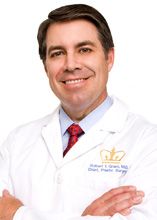Article
Educating Patients on Selecting a Surgeon for Cosmetic Enhancements
Author(s):
Patients would never go to a plastic surgeon for an ear infection or a Pap smear, so why are they turning to an ophthalmologist or gynecologist for cosmetic enhancements?

Patients would never go to a plastic surgeon for an ear infection or a Pap smear, so why are they turning to an ophthalmologist or gynecologist for cosmetic enhancements?
In response to the tangled web of insurance reimbursement limitations, an increasing number of physicians are supplementing their incomes by conducting cash-paid cosmetic surgery procedures. Nowadays, ophthalmologists are performing liposuction, gynecologists are performing breast augmentation, and non-specialized physicians are administering injectables and other facial fillers. But more often than not, the results leave the patient dissatisfied or even disfigured.
This disturbing trend is becoming more and more common, and it’s time to stop the insanity. Therefore, it is the job of accredited plastic surgeons to educate their existing and prospective patients on how to best select a surgeon for cosmetic procedures.
Board certification in plastic surgery
As we all know, board certification is a credential physicians choose to obtain after medical school and residency training in a particular field. But patients need to keep in mind that a doctor can be board certified in a number of different fields. Therefore, patients should do their homework to ensure the surgeon is board certified in plastic surgery — ideally from the American Board of Plastic Surgery (ABPS), because physicians with an ABPS certification are held to more rigorous testing and higher standards.
A lack of board certification in plastic surgery can mean any number of things, which include, but are not limited to:
- The physician may not have fulfilled the training requirements of the ABPS.
- The doctor may have completed his or her training outside of the US or Canada.
- The provider may have failed his or her exams.
Fully accredited surgery facilities
The location of a patient’s plastic surgery procedure matters a lot. Some non-specialized physicians who conduct surgical enhancements are doing so in non-accredited facilities like spas or tanning salons, which are not equipped to handle an emergency situation, if one should arise.
Thus, it is highly important to inform patients that plastic surgeons who are members of the American Society of Plastic Surgery (ASPS) have pledged to only operate in fully accredited facilities, such as hospitals or surgery care centers. A doctor who operates without hospital privileges is not subject to the same degree of scrutiny or high standards.
--
When seeking a cosmetic enhancement from a board-certified plastic surgeon, patients can rest assured that they are being cared for by a physician who specializes in plastic surgery and is more than capable of handling any issue that may arise.
Robert T. Grant, MD, MSc, FACS, is Chief of the combined Divisions of Plastic Surgery at New York-Presbyterian Hospital-Columbia University Medical Center and New York-Presbyterian Hospital-Weill Cornell Medical Center. He is also Associate Clinical Professor of Surgery in the College of Physicians and Surgeons at Columbia University and Adjunct Associate Professor of Clinical Surgery at Weill Cornell Medical College. For more information about Dr. Grant or to contact him, visit his website at www.robertgrantmd.com.





